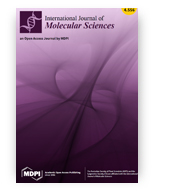Studies on the Anticancer and Antioxidant Activities of Resveratrol and Long-Chain Fatty Acid Esters
Patrycja Szczepańska; Magdalena Rychlicka; Sylwia Groborz; Angelika Kruszyńska; Rodrigo Ledesma-Amaro; Andrzej Rapak; Anna Gliszczyńska; Zbigniew Lazar
International Journal of Molecular Sciences
Ministerial score = 140.0
Journal Impact Factor (2023) = 6.208 (Q1)
 Resveratrol (RES) is gaining recognition as a natural bioactive compound. To expand the possible applications of RES with its enhanced bioactivity as well as to increase the health benefits of long-chain fatty acids, a lipophilization process of RES was performed using three fatty acids: palmitic acid (PA), oleic acid (OA), and conjugated linoleic acid (CLA). The obtained mono-, di-, and tri-esters of RES were evaluated for their anticancer and antioxidant properties against lung carcinoma (A549), colorectal adenocarcinoma (HT29), and pancreatic ductal adenocarcinoma (BxPC3) cell lines. Human fibroblast (BJ) cells were used as a control. Several parameters were investigated: cell viability and apoptosis, including the expression of major pro- and anti-apoptotic markers, as well as the expression of superoxide dismutase, a key enzyme of the body’s antioxidant barrier. Three of the obtained esters: mono-RES-OA, mono-RES-CLA, and tri-RES-PA, which significantly reduced the tumor cell viability up to 23%, at concentrations 25, 10, 50 μg/mL, respectively, turned out to be particularly interesting. The above-mentioned resveratrol derivatives similarly increased the tumor cells’ apoptosis by modifying their caspase activity of pro-apoptotic pathways (p21, p53, and Bax). Moreover, among the mentioned esters, mono-RES-OA induced apoptosis of the analyzed cell lines most strongly, reducing the number of viable cells up to 48% for HT29 cells versus 36% for pure RES. Furthermore, the selected esters exhibited antioxidant properties towards the normal BJ cell line by regulating the expression of major pro-antioxidant genes (superoxide dismutases—SOD1 and SOD2) without the effect on their expression in the tumor, and therefore reducing the defense of cancer cells against increased oxidative stress induced by high ROS accumulation. The obtained results indicate that the esters of RES and long-chain fatty acids allow enhancement of their biological activity. The RES derivatives have the potential for being applied in cancer prevention and treatment, as well as for oxidative stress suppression.
Resveratrol (RES) is gaining recognition as a natural bioactive compound. To expand the possible applications of RES with its enhanced bioactivity as well as to increase the health benefits of long-chain fatty acids, a lipophilization process of RES was performed using three fatty acids: palmitic acid (PA), oleic acid (OA), and conjugated linoleic acid (CLA). The obtained mono-, di-, and tri-esters of RES were evaluated for their anticancer and antioxidant properties against lung carcinoma (A549), colorectal adenocarcinoma (HT29), and pancreatic ductal adenocarcinoma (BxPC3) cell lines. Human fibroblast (BJ) cells were used as a control. Several parameters were investigated: cell viability and apoptosis, including the expression of major pro- and anti-apoptotic markers, as well as the expression of superoxide dismutase, a key enzyme of the body’s antioxidant barrier. Three of the obtained esters: mono-RES-OA, mono-RES-CLA, and tri-RES-PA, which significantly reduced the tumor cell viability up to 23%, at concentrations 25, 10, 50 μg/mL, respectively, turned out to be particularly interesting. The above-mentioned resveratrol derivatives similarly increased the tumor cells’ apoptosis by modifying their caspase activity of pro-apoptotic pathways (p21, p53, and Bax). Moreover, among the mentioned esters, mono-RES-OA induced apoptosis of the analyzed cell lines most strongly, reducing the number of viable cells up to 48% for HT29 cells versus 36% for pure RES. Furthermore, the selected esters exhibited antioxidant properties towards the normal BJ cell line by regulating the expression of major pro-antioxidant genes (superoxide dismutases—SOD1 and SOD2) without the effect on their expression in the tumor, and therefore reducing the defense of cancer cells against increased oxidative stress induced by high ROS accumulation. The obtained results indicate that the esters of RES and long-chain fatty acids allow enhancement of their biological activity. The RES derivatives have the potential for being applied in cancer prevention and treatment, as well as for oxidative stress suppression.
DOI:10.3390/ijms24087167









